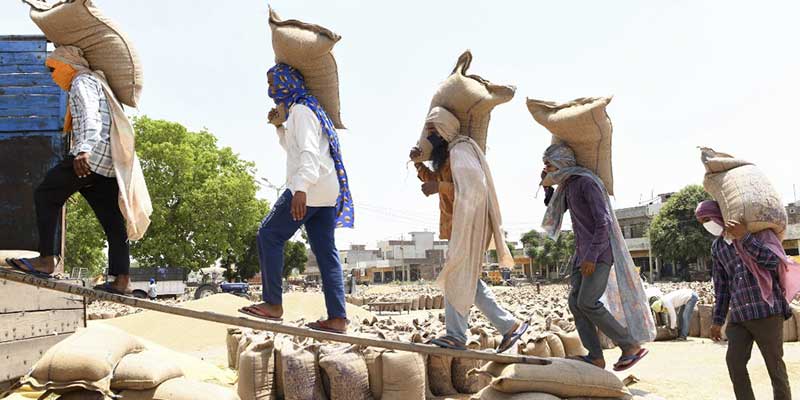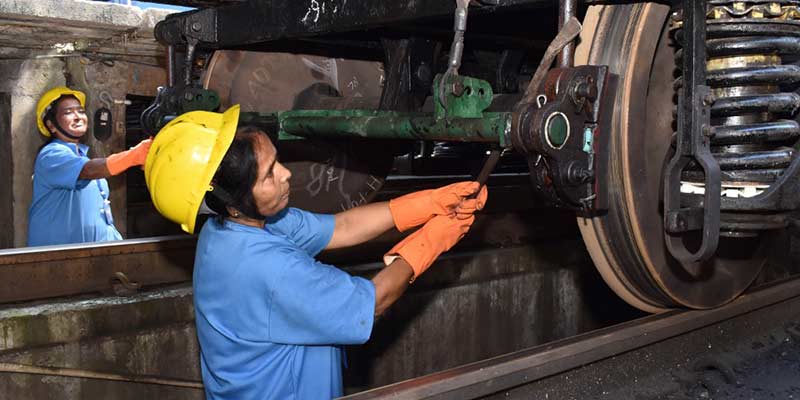- India
- Jul 20
Explainer / Role of Chief Labour Commissioner
Chief Labour Commissioner of India D.P.S. Negi reviewed the status of sensitisation and implementation of labour laws and labour codes in various developmental projects in Srinagar.
Senior officers of state government and GMs in-charge of the projects briefed the CLC(C) regarding the compliance with various labour laws.
What is the role of Chief Labour Commissioner?
• Chief Labour Commissioner’s (Central) Organisation, also known as Central Industrial Relations Machinery (CIRM) is an attached office of the ministry of labour & employment.
• The CIRM is headed by the Chief Labour Commissioner (Central).
• The CIRM is responsible for maintaining harmonious industrial relations mainly in the sphere of central government.
• The organisation was set up in April 1945 by combining the former organisations of the conciliation officer (Railways), supervisor of railway labour and the labour welfare adviser.
• It has been entrusted with the task of maintaining harmonious industrial
relations, enforcement of labour laws and verification of CTUOs (Central Trade Union Organisations).
• CIRM has 18 officers at the headquarters and 287 officers in the field. The offices of these officers are spread over different parts of the country with regional and unit level formations.
The functions of CIRM are:
1) Prevention and Settlement of Industrial Disputes in Central Sphere
• The CIRM ensures harmonious industrial relations in the central sphere establishments through:
• Intervention, mediation and conciliation in industrial disputes in order to bring about settlement of disputes.
• Intervention in situations of threatened strikes and lockouts with a view to avert the strikes and lockouts.
• Enforcement of other provisions in Industrial Disputes Act, 1947 relating to works committee, recovery of dues, lay off, retrenchment, unfair labour practices, etc.
2) Enforcement of Labour Laws and Rules
Enforcement of labour laws and rules made there under is an important function of the organisation of CLC(C).
• The machinery enforces following labour laws and rules framed there under:
• The Payment of Wages Act, 1936 & rules made thereunder for mines, Railways & air transport services.
• The Minimum Wages Act, 1948 and Rules.
• The Contract Labour (Regulation & Abolition) Act, 1970 and Rules.
• The Equal Remuneration Act 1976 & Rules.
• The Inter-State Migrant Workmen (RE&CS) Act, 1979 and Rules.
• The Child and Adolescent Labour (Prohibition & Regulation) Act, 1986 and Rules.
• The Payment of Gratuity Act, 1972 and Rules.
• The Labour Laws (Exemption from Furnishing Returns and Maintaining Registers by Certain Establishments) Act, 1988.
• The Building and other Construction Workers (RE&CS) Act, 1996 and Rules.
• The Chapter VI-A of Indian Railways Act.
• Hours of Employment Regulations for Railways Employees.
• The Industrial Employment (Standing Orders) Act, 1946 & Rules.
• The Maternity Benefit Act, 1961 & Mines and Circus Rules, 1963 & Rules.
• The Payment of Bonus Act, 1965, and Rules.
• There are about 2.56 lakh establishments in the central sphere. The inspecting officers of CIRM inspect these establishments under different labour enactments through routine inspections and special drives to secure benefits of legislations to workers.
• Major establishments covered under the central sphere include Railways, mines, banks, insurance, major ports, cantonment boards, ONGC, Indian Oil, BPCL, HPCL, FCI, etc.
3) Implementation of awards
• The officers of CIRM implement awards issued by Central Government Industrial Tribunal-cum-Labour Courts (CGITs).
• During 2019-20, awards were received (including brought forward). Out of these, 498 were implemented, implementation of 962 awards were stayed by courts and implementation of 823 awards are under process.
• Difficulties in implementing the awards are experienced as employers obtain stay orders from High Courts on implementation.
4) Quasi-judicial functions
The officers of CIRM perform quasi-judicial functions under various labour enactments.
5) Verification of Central Trade Union Organisations
• The verification of membership of unions operating in the establishments of the central sphere is conducted by Chief Labour Commissioner’s (Central) organisation under Code of Discipline for the purpose of granting recognition as and when directed by the ministry of labour and employment.
6) Welfare & Training
• The officers ensure harmonious industrial relations in their respective establishments. They also look after the welfare and redressal of grievances of the workers, administration of welfare schemes and advise the managements on various labour matters including constitution of bilateral committees such as shop councils, works committees, etc.
• In house training on regular basis to the officers of Central Labour Service (CLS) with a view to enhance their skills and knowledge in various areas of their functioning for effective discharge of their duties.
In addition to the above, CIRM performs many miscellaneous functions which include:
• Conducting periodic meetings of Minimum Wages Advisory Board and notifying Variable Dearness Allowance.
• Defending ministry of labour & employment in various Writ Petitions filed against the ministry in different High Courts.
Manorama Yearbook app is now available on Google Play Store and iOS App Store


